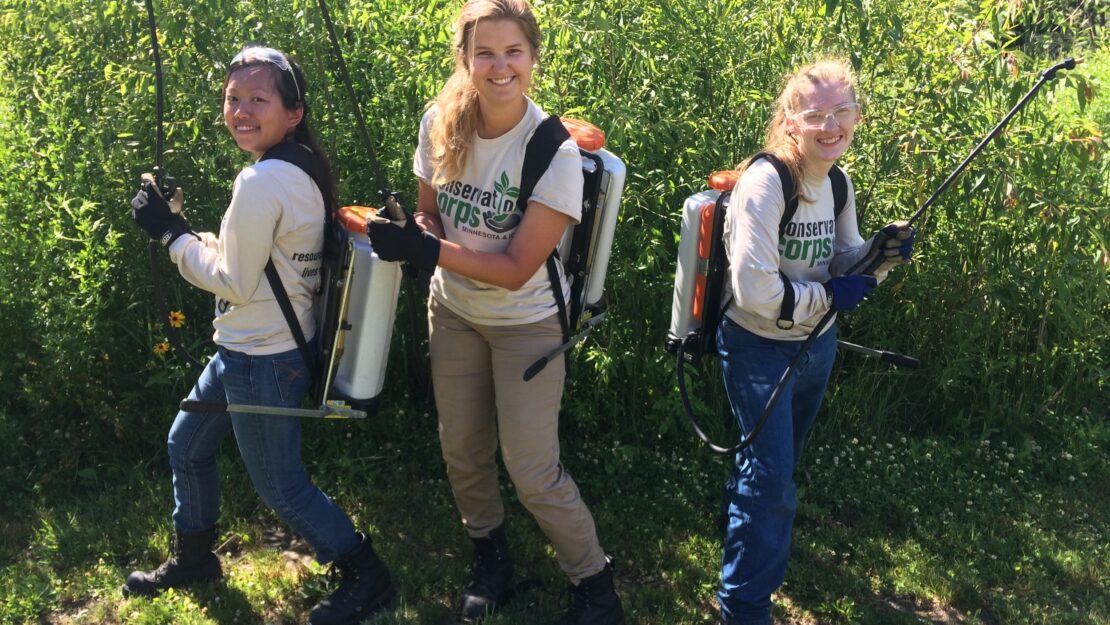Relearning my own neighborhood

By: Rose Lundy

As a born-and-raised Minnesotan, I am proud of the value our state places on protecting the environment. We have so many diverse native species here that contribute to beautiful parks and wild spaces, making Minnesota a great place to live. When I was hired with Conservation Corps Minnesota I was excited to have the opportunity to work at the parks and lakes that I have known since childhood. The Como neighborhood where my crew is based is a ten-minute bike ride from my house, so it feels like I am learning and applying conservation techniques in my own backyard.
After only a few weeks with Conservation Corps, I started to see the local St. Paul wildlife in a new way. I have always known that invasive species are a problem here — indeed they are a problem just about everywhere — but now I am learning about and removing invasive species that I didn’t even know were in our state. When I visited city parks as a child, I used to walk around vaguely aware of pretty flowers or distracting weeds, but I was not overly invested in the health of local ecosystems. Now I can’t drive along the highway without noticing the Canada thistle sprouting up, and I can’t go camping with friends without mentally acknowledging the high level of reed canary grass along the water’s edge. It can be sad to suddenly be so aware of the prevalence of invasive species in your own neighborhood, but it is also crucial to understand the threats to our natural spaces in order to protect them.
Performing conservation work in Minnesota provides an added level of responsibility and dedication because you can see the results of your hard work even on your days off. When you are in charge of making your own neighborhood healthier and happier, the investment of time and energy becomes even more important. I have really enjoyed learning about my own neighborhood, even if the focus is mostly on the problems, because this information will help us continue to improve our own backyards. The value of conservation work is that it protects, preserves and restores wild spaces for future generations. We want to keep Minnesota natural habitats as stable as possible so that native species can thrive and our state can continue to be a pleasant place to be outside. I can think of no better way to give back to my hometown.